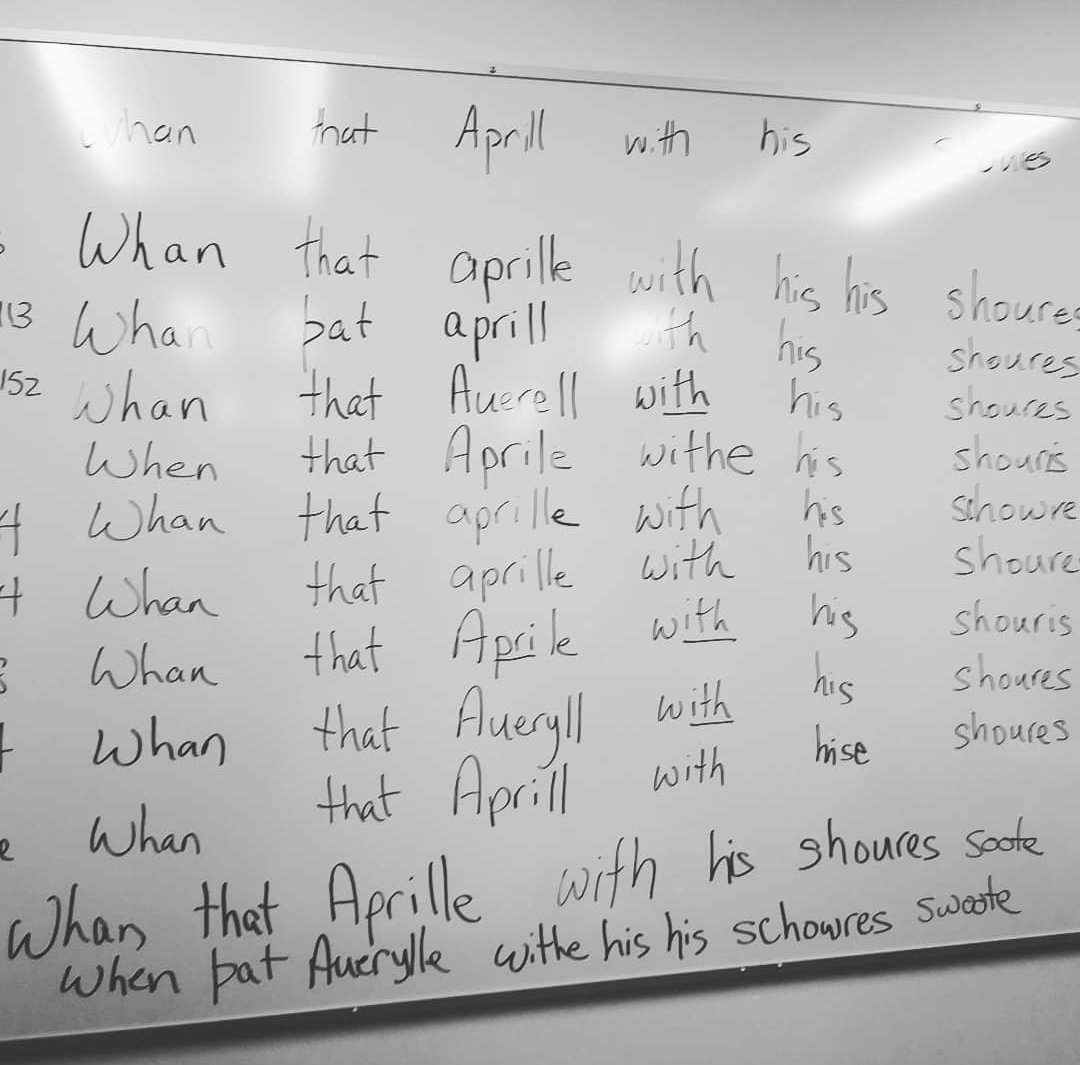punctuation and capitalization in fiction are like musical notation, not like cohesive grammar. you're not using it to be correct, you're using it to indicate how your narrative voice should sound in your reader's head.
a period is a whole rest, a comma is a quarter rest. em dashes tell you things should sound staccato and cut off, ellipses that they should sound leisurely and trailing
a colon is just a cliff you fall off into a shocking thought
haha, colon
but yeah I think a lot about the Purpose of spelling and grammar because I have spent a lot of time reading medieval manuscripts, which are of course completely unstandardized
and different spelling and punctuation choices per manuscript don't make them unintelligible, but they do affect what it feels like to read each separate version
here's an example. this is the same sentence from the Canterbury Tales transcribed from a bunch of different manuscripts
anything with variants on "avril" feels more French and therefore classier. anything with þ instead of "th" sounds just a little archaic, because þ was going out of style as a letter. but they're all recognizably conveying the same content
and those are the choices we need to be thinking about when we write. every choice matters, and prescriptive grammar can't tell you the emotional effect a choice will have

 Read on Twitter
Read on Twitter


